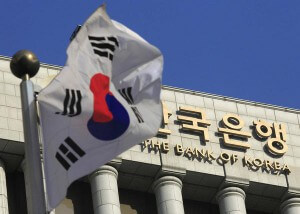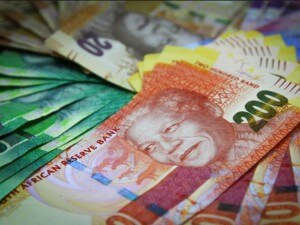CHINA’S GDP GROWTH REBOUNDS IN SECOND QUARTER
Gross domestic product in China bounced back in Q2, with the economy growing 3.2% YoY. This followed the 6.8% decline in Q1 and exceeded economist forecasts of 2.5%. Industrial production was bolstered by stimulus measures from authorities and grew 4.4% YoY in Q2, with most of the growth coming from energy production, raw materials and tech components. However, retail sales remained soft, falling 3.9% in Q2. There appears to be an uneven picture forming in consumer spending; with certain areas like premium autos remaining robust and COVID-19 affected sectors like leisure, recovering at a much slower pace. Meanwhile, a separate report showed that exports and imports both rose in June, rising 0.5% and 2.7% respectively. Demand for Chinese exports is improving in key markets like the U.S. and EU as a result of easing lockdown measures and improving consumer spending.

The US stock market edged higher in the week, with the S&P rising 1.25% and the NASDAQ falling 1.08%. USD weakened slightly with the dollar index falling 0.73%. By the end of the trading week, the 2-year and 10-year Treasury yields were flat, at 0.15% and 0.63% respectively.

European markets rose strongly over the week: France (+3.21%), Germany (+3.48%), Italy (+4.53%), Spain (+2.84%), UK (+2.63%), all in USD. The 10-year German sovereign yield finished the week at -0.45% (+2 bp). UK 10-year Gilts ended the week flat at 0.16%.

Asian indices were mixed over the week and the MSCI Asia Ex -Japan index fell 1.69% in USD. China A shares (-4.91%) and H shares (-3.24%) were the largest detractors. India (+1.58%), Pakistan (+3.09%) and Korea (+2.05%) were the largest risers (all in USD).
Retail inflation in India remained elevated in June; the consumer price index was 6.09% in June, up from 5.84% in March. This compared to a 5.6% consensus estimate on Bloomberg. A break-down by category showed that inflation was pushed higher by certain foods, clothing, and transportation. Core inflation categories saw low inflation, reflecting the sluggish demand conditions. The monetary policy committee will meet on August 6th, where the market expects a 25bps rate cut.
As expected, the Central Bank of Indonesia has cut its main policy rate by 25bps to 4.0%. This is the fourth time this year that the central bank has cut interest rates, aimed at bolstering the recovery from the coronavirus pandemic. Central Bank Governor Warjiyo told press that the decision “is consistent with low inflationary pressure, maintained external stability and the need to speed up economic recovery during the coronavirus pandemic…this decision is aimed at fully supporting economic recovery while also maintaining inflation and exchange rate stability.”
The Bank of Korea (BOK) decided to leave its key interest rate unchanged at 0.5%, in-line with forecasts. The BOK felt little need for a further rate reduction after already reducing it twice by 75bps to a record low of 0.5% amid the COVID-19 pandemic. The BOK predicted that the Korean economy may shrink by 1.8% this year in the worst-case scenario if a second wave of COVID-19 infections hits the world in the coming fall and winter.

It was a positive week for the broadly followed Latin America equity index as it rose 1.8%. The individual country indexes results were mixed with Argentina’s Merval and Brazil’s Bovespa rising over 4% in USD. Meanwhile, the Chilean IPSA, Mexico’s Bolsa and Colombia’s Colcap respectively returned -3.1%, -0.3% and -0.2%. The Peruvian BVL index was broadly flat.
COVID-19 related statistics show Mexico as having a 10% death rate, while in Brazil, Chile and Peru its under 4%.
Chile left interest rates unchanged at a record low of 0.5% due to the lockdown’s impact of lowering demand and output, while inflation is nowhere to be seen. The central bank expects Chile’s economy to contract as much as 7.5% this year, the worst recession in four decades, according to its quarterly report released last month. Chile’s lower house of Congress approved a bill allowing citizens to tap part of their pension savings amid the coronavirus outbreak, a vote that took the market by surprise as the government had a bill to increase pension contributions by both individuals and employers. The populist measure goes to the Senate where it will be further discussed and likely amended.
Although there was a YoY decline of 32.75% in Peru’s economic activity for the month of May, we did see a 13% improvement on a month-on-month basis in May, due to the gradual lifting of lockdown. Peru’s central bank reached an agreement to participate in the Fed’s dollar liquidity program established last March, essentially providing it with more alternatives for liquidity.
Brazil watchers look ahead to a week where the economic team is expected to present its tax reform proposal to Congress.

African markets were mixed over the week. In USD: Morocco (+1.99%) and South Africa (+1.38%) led the pack, while Egypt (-3.75%) and Ghana (-0.26%) lagged.
South Africa inflation fell to its lowest in 15 years driven by a lack of demand, weak business and consumer confidence, and declining cost of fuel. CPI in May slowed to 2.1% YoY, from 3.0% in April. On a MoM basis, inflation fell 0.6%. The annual reading for May 2020 is the lowest since September 2004, falling below the lower end of the central bank’s target range, 3% to 6%.
The outlook for inflation remains benign given the weak state of the economy which has been further exacerbated by a COVID-19 induced lockdown. The low inflation points to some scope for further rate cuts, however base interest rates are already at multi year lows and the central bank had previously signalled that it had reached the trough in rate cuts.
Consumer prices in Nigeria rose 12.6% YoY, its highest level in more than two years, from 12.4% in May, well above the central bank’s target range of 6% to 9%. The consumer price pressure has been driven by food inflation which increased to 15.2% from 15.0% in May and has been in double digits for more than three years.
This week’s global market outlook is powered by Alquity www.alquity.com




